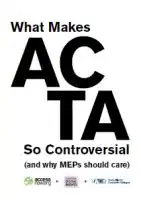 | |
| Abbreviation | EDRi |
|---|---|
| Formation | 2002, Berlin, Germany |
| Type | International non-profit association |
| Purpose | Privacy, Data Protection, Net Neutrality, Copyright |
| Headquarters | Brussels, Belgium |
ED | Claire Fernandez[1] |
| Website | edri.org |
European Digital Rights (stylized EDRi) is an international advocacy group headquartered in Brussels, Belgium. EDRi is a network collective of non-profit organizations (NGO), experts, advocates and academics working to defend and advance digital rights across the continent. As of October 2022, EDRi is made of more than 40 NGOs, as well as experts, advocates and academics from all across Europe.[2]
History
European Digital Rights (EDRi) is a not-for-profit association registered in Belgium.[3]
EDRi was founded in June 2002 in Berlin by ten non-profits from seven countries, as a result of a growing awareness of the importance of European policymaking in the digital environment. The group was created in response to some of the earliest challenges in this policy area. Its founding board members were Maurice Wessling from Bits of Freedom, Andy Müller-Maguhn from the Chaos Computer Club and Meryem Marzouki from Imaginons un Réseau Internet Solidaire. Since inception, EDRi has grown significantly.
In October 2014, 34 privacy and civil rights organisations from 19 different countries in Europe had EDRi membership, and the organisation continued to grow. The need for cooperation among digital rights organisations active in Europe was increasing as more regulation regarding the Internet, copyright and privacy is proposed by European institutions, or by international institutions with strong effect in Europe.[4]
In March 2021, EDRi is made of 44 NGOs,[2] as well as experts, advocates and academics from all across Europe.
The current President of the Board of EDRi is Anna Fielder, Vice President is Thomas Lohninger.[5]
Activities

EDRi's objective is to promote, protect, and uphold civil rights in the field of information and communication technology. This includes many issues relating to privacy and digital rights, from data retention to copyright and software patents, from the right to data protection and privacy to freedom of speech online, from privatised enforcement to cybersecurity.[6]
EDRi provides a strong civil society voice and platform to ensure that European policy, which affects the digital environment, is in line with fundamental rights.[7]
Recently, EDRi highlighted fundamental rights issues in the current collective rights management regime and privacy implications of online tracking. The organisation continues to defend citizens' right to private copying, air travellers' privacy and the right to freedom of expression in the notice and takedown debates in Europe. It supports improving citizens' access to audiovisual online content and promotes a legal protection of Net neutrality in Europe.[8] EDRi also fights for an update of copyright, and against blanket retention of communications data.[9] EDRi's key priorities are currently privacy, surveillance,[10] net neutrality and copyright reform.[11]
In addition to regular publications, such as booklets known as the "EDRi papers", EDRi publishes yearly reports and a bi-weekly newsletter about digital civil rights in Europe, the EDRi-gram.[12]
Campaigns
EDRi launches campaigns to increase public awareness on issues related to information and communication technologies discussed both in the European institutions and on a global level.[13]
Reclaim Your Face
Launched in October 2020 [14] and coordinated by EDRi, ReclaimYourFace [15] is a European movement that brings people's voices into the democratic debate about the use of our biometric data. The coalition calls for a prohibition on the use of our most sensitive data for mass surveillance in public spaces due to its impact on our rights and freedoms.
The initiative launched a European Citizens' Initiative in February 2021 and calls on the European Commission to strictly regulate the use of biometric surveillance technologies.
Previous campaigns
Among key campaigns launched by European Digital Rights are, in 2003 and 2011, against passenger name records (PNRs),[16] in 2005, against data retention and in 2010 and in favour of a copyright reform. EDRi actively participated in the vast campaign against ACTA which successfully ended with the rejection of the proposal by the European Parliament in July 2012. During the European elections 2014, EDRi led an innovative campaign to raise the profile of digital rights issues. To this end, EDRi's members drafted a 10-point Charter of Digital Rights that candidates running for the European Parliament could promise to defend. These principles include the promotion of transparency and citizen participation; the support for data protection and privacy, unrestricted access to the Internet, an update for copyright legislation; promotion of online anonymity and encryption, multistakeholderism, and open source software.
European Digital Rights and its members fought as well for the General Data Protection Regulation. Through an important awareness-raising campaign, citizens were able to contact Members of the European Parliament representing their country in order to ask them to defend fundamental rights to privacy and data protection. After the regulation was passed, EDRi associates began to file complaints to enforce it.[17]

Members
Statutory membership is restricted to not-for-profit, non-governmental organisations whose goals include the defence and promotion of civil rights in the field of information- and communication technology.[18] The member organisations of European Digital Rights are:
 Austria
Austria
- Epicenter.works
- Initiative für Netzfreiheit ("Internet Freedom Initiative")
- quintessenz
- VIBE!AT
.svg.png.webp) Belgium
Belgium
 Bulgaria
Bulgaria
 Czech Republic
Czech Republic
- Iuridicum Remedium
 Denmark
Denmark
- IT-Political Association of Denmark (IT-Pol)
 Finland
Finland
- Electronic Frontier Finland (EFFI)
 France
France
 Germany
Germany
- Chaos Computer Club (CCC e.V.)
- Digitalcourage [lower-alpha 1]
- Digitale Gesellschaft
- Forum InformatikerInnen für Frieden und gesellschaftliche Verantwortung (FIfF e.V.)
- Förderverein Informationstechnik und Gesellschaft (FITUG e.V.)
- Free Software Foundation Europe
- Wikimedia Deutschland
 Greece
Greece
- Homo Digitalis
 Ireland
Ireland
 Italy
Italy
- ALCEI ("Association for the Freedom of Interactive Electronic Communications")
- HERMES Center
 North Macedonia
North Macedonia
- Metamorphosis
 The Netherlands
The Netherlands
- Bits of Freedom
- Vrijschrift
 Norway
Norway
- Electronic Frontier Norway (EFN)
 Poland
Poland
 Portugal
Portugal
- Associação D3 - Defesa dos Direitos Digitais[19]
 Romania
Romania
- Association for Technology and Internet (APTI)
 Serbia
Serbia
- Share Foundation
 Spain
Spain
- Nodo50.org
- Xnet
 Sweden
Sweden
- DFRI (Digital Freedom and Rights Association)
 Turkey
Turkey
 United Kingdom
United Kingdom
Non-European and international members
 Europe
Europe
 International
International
 United States
United States
Former members
Support
EDRi is financed by membership fees and donations from the public.[20] The organisation receives funding from the Open Society Foundations and the Adessium Foundation, as well as some corporate funding.[21]
See also
Notes
References
- ↑ "Welcoming our new Executive Director Claire Fernandez!". 6 November 2018. Archived from the original on 12 December 2019. Retrieved 7 November 2018.
- 1 2 "The EDRi network". Archived from the original on 2022-02-05. Retrieved 2021-03-11.
- ↑ "European Digital Rights | Digital Watch Observatory". 11 October 2022. Archived from the original on 2022-10-19. Retrieved 2022-10-19.
- ↑ "about". Archived from the original on 2020-06-06. Retrieved 2019-05-25.
- ↑ "The EDRi Board". Archived from the original on 2022-02-05. Retrieved 2021-03-11.
- ↑ "Romanian version of EU cybersecurity directive allows warrantless access to data". PCWorld. 2014-12-24. Archived from the original on 2016-06-10. Retrieved 2018-04-27.
- ↑ "EU "e-evidence" proposals turn service providers into judicial authorities". EUBusiness. 2018-04-17. Archived from the original on 2019-03-21. Retrieved 2018-04-27.
- ↑ Khiri, Yassine; Bonnard, Jules (2022-05-22). "Tech vs telecoms: EU ignites debate on 'net neutrality'". techxplore.com. Archived from the original on 2022-10-19. Retrieved 2022-10-19.
- ↑ "Websites Worry EU May Seek Heavy Copyright Monitoring". Bloomberg law. 2018-04-09. Archived from the original on 2018-06-24. Retrieved 2018-04-27.
- ↑ Claburn, Thomas (2022-10-13). "Client-side scanning to detect child abuse material harmful". www.theregister.com. Archived from the original on 2022-10-19. Retrieved 2022-10-19.
- ↑ "about". EDRi. Archived from the original on 2020-06-06. Retrieved 2019-09-13.
- ↑ "About EDRI-gram". 27 February 2006. Archived from the original on 24 July 2019. Retrieved 25 May 2019.
- ↑ "Campaigns | EDRI". Archived from the original on 2013-06-05. Retrieved 2013-05-02.
- ↑ "RYF launch". Archived from the original on 2022-02-05. Retrieved 2021-03-11.
- ↑ "Reclaim Your Face: Ban Biometric Mass Surveillance!". Reclaim Your Face. Archived from the original on 2022-02-05. Retrieved 2021-03-22.
- ↑ "Passenger Name Record: EU to harvest more data to stop crime". BBC. 2014-12-24. Archived from the original on 2016-06-10. Retrieved 2016-04-16.
- ↑ "Italian DPA fines Clearview AI for illegally monitoring and processing biometric data of Italian citizens". European Digital Rights (EDRi). 2022-03-23. Archived from the original on 2022-10-19. Retrieved 2022-10-19.
- ↑ "EDRI Members". EDRI. Archived from the original on 6 June 2020. Retrieved 6 July 2017.
- ↑ "D3 torna-se membro da European Digital Rights (EDRi)". Archived from the original on 2022-02-05. Retrieved 2021-01-20.
- ↑ "Please donate! | EDRI". Archived from the original on 2013-04-24. Retrieved 2013-05-02.
- ↑ "Annual Reports". EDRi. Archived from the original on 2020-06-06. Retrieved 2020-06-27.